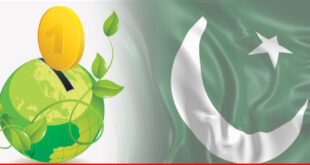Published on 25th Feb, Edition 09, 2013
Islamic banking has been defined as a system of banking, which is in accordance to the values and the spirit of Islam and is based on principles, which have been put forth by the Islamic Shariah. Not only does this form of banking avoid any interest-based transactions, it also avoids unethical and immoral social practices, which go against Islamic law. Thus the aim of Islamic banking is to work towards achieving economic prosperity.
Islamic banking first began in the 1970 and since then, has steadily grown. More than 300 financial institutions exist worldwide in over 75 countries, all of which have Islamic banking as their foundation.
Islamic banking lies on the premise that both parties are to mutually share the profits as well as the risks involved in the transaction with existing fairness throughout the transaction. Islamic banking encourages any activity, which cultivates and promotes commerce, entrepreneurship and brings about development in society whereas activities containing/based on maisir (gambling), riba (interest) and gharar (speculative trading) are rightly forbidden in it as they do not fall under the spirit and laws, which govern banking in Islam.
Poverty is wide spreading all over the world and this social phenomenon is considered to be immoral. It must be eradicate and can be done so with the help of Islamic banking, adding to its advantages. Working towards the eradication of poverty has been one of the aims of the Islamic Development Bank who believes the eradication of poverty is equally important, as is the protection of human life. Since its emergence in 1975, the bank has used funds amounting to $5 billion, which it received through Islamic banking to provide to its member countries for activities such as education, water, agriculture, health and sanitation, which are seems to be pro-poor activities. With the help of this financing, it has been possible to fulfill the basic needs of the poor by a number of development, capacity building and training programmes for women in order to increase their participation in the economic sphere. The Islamic Development Bank has focused on five sectors, which it feels must be worked upon for the elimination of poverty namely health, education, supply of water and sanitation, power and transport and development in agriculture sectors, especially in the rural areas.
Considering the response to Islamic banking in Pakistan, due to a number of misconceptions regarding the system, the growth of the industry is not very rapid. The population is unaware and ignorant about the basic of Islamic banking, which has led to confusion and hesitance in adapting to a new banking system. Since its emergence in 2002, a lack of professional human capital and ill informed bankers about the principles of this system led to a failure in convincing the clients of the system. The human resources who entered the industry also began to sell Islamic banking products similar to the way they would have practicing in the conventional banking system whereas due to the competition between the two systems in the country, this act increased the negative propaganda of Islamic banking. Hence, misconceptions about the concept of Islamic banking have been extensive amongst the laymen.
The Islamic finance industry in Malaysia has emerged more than 30 years ago and is considered to be a model worthy of consideration due to its effectiveness. With the passing of the Islamic Banking Act of 1983, the first Islamic bank in Malaysia was established and since then, a number of financial institutions based on Islamic principles have emerged which have given the country a firm and stable financial strength. The system has benefited its financial system in terms of richness and diversity. The activities of the various Islamic financial institutions have been guided by a set of legislation, which is one of the major reasons for the model in place to have developed into a fully operating system alongside conventional banking.
An important aspect of the Islamic Banking Act of 1983 was the emergence of a Shariah Supervisory Council at Bank Islam Malaysia Berhad, which was to be the sole interpreter for all financial institutions functioning on Islamic law, which allowed standardisation in interpretation thereby allowing no room for different views by other Shariah Supervisory Councils to be addressed and reconciled with. It has a dual system i.e. a fully working Islamic banking system as well as a conventional system working parallel. The benefits of having a dual system in place have led to a wider range of Islamic banking products to be available and because the system operates in a competitive environment all services must be provided by banks working on the Islamic system, which keeps alive, the possibility of clients shifting to the conventional system of banking.
Assets from the country’s Islamic banking sector amount to US$ 65.6 billion, having an 18-20 percent annual average growth rate. Not only has Malaysia worked on establishing and developing the Islamic financial industry but effort has been put alongside to ensure that the country has the required professionals as well.
Despite Islamic financial institutions expanding fast, the market is still considered rather small. Pakistan’s approach to Islamic banking is one, which is steady and cautious, however, despite such precaution; the share of Islamic banking is 3.2 percent in the overall banking system. In terms of the products offered by the Islamic banking sector, 75 percent are similar to those offered by conventional banks, however, credit cards and personal loans still seem to be a challenge which has to be overcome.
Islamic banking operations are exclusive to major cities with secondary cities only now experiencing the emergence of Islamic banks; the system has not reached the rural areas of Pakistan as yet where potential for growth is quite high.
Having successfully laid the foundation for the banking system as well as the major infrastructure for the system to function on, there is great potential for Pakistan in the upcoming future. However going into the future with such a system, Pakistan must ensure that it adopts a strategy and approach which is further coordinated and standardised in order for the industry to develop.
 PAGE Blog Business Weekly Magazine
PAGE Blog Business Weekly Magazine

